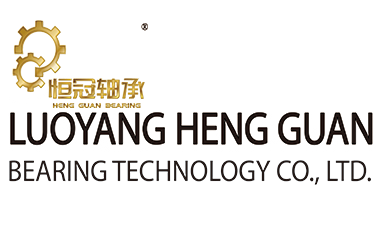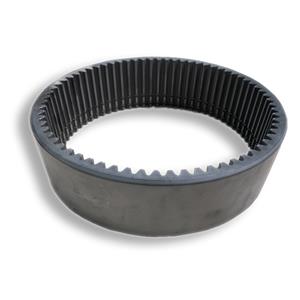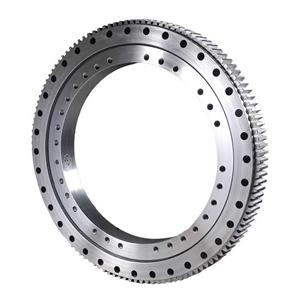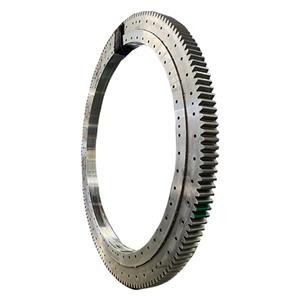Introduction to selection tips when purchasing slewing bearings
Slewing bearings are a common rotating bearing, often used in many mechanical equipment such as cranes, construction machinery, excavators, conveyors, etc. It is an important component connecting the upper equipment and the lower equipment, which can enable the equipment to rotate 360 degrees in the horizontal direction to achieve a more flexible working method. Choosing a suitable slewing bearing has an important impact on the service life, performance and safety of the equipment. This article aims to introduce how to choose a slewing bearing.
1. Material selection requirements
1) Good wear resistance
Slewing bearings are one of the important components of the equipment. They have to withstand greater mechanical pressure and wear, so the material selection requires materials with good wear resistance. Xuzhou Hailin Slewing Bearing Co., Ltd. introduces that slewing bearings usually use good steel, such as alloy steel, high carbon steel, etc., to ensure that they have good wear resistance and can withstand long-term use and heavy-load working environments.
2) High reliability
Slewing bearings are usually one of the core components of the equipment, and the quality problems during use are very serious. Therefore, material selection needs to ensure its reliability. Generally speaking, it is necessary to select good steel and strictly control it according to the process flow to ensure that key parameters such as internal structure and hardness meet the requirements, thereby improving the reliability of the slewing bearing.
3) Good corrosion resistance
In some industries, the environment contains more corrosive substances, so the material of the slewing bearing must have a certain degree of corrosion resistance. Generally, materials such as stainless steel with good corrosion resistance are selected to avoid damage and failure caused by environmental corrosion of the slewing bearing material.
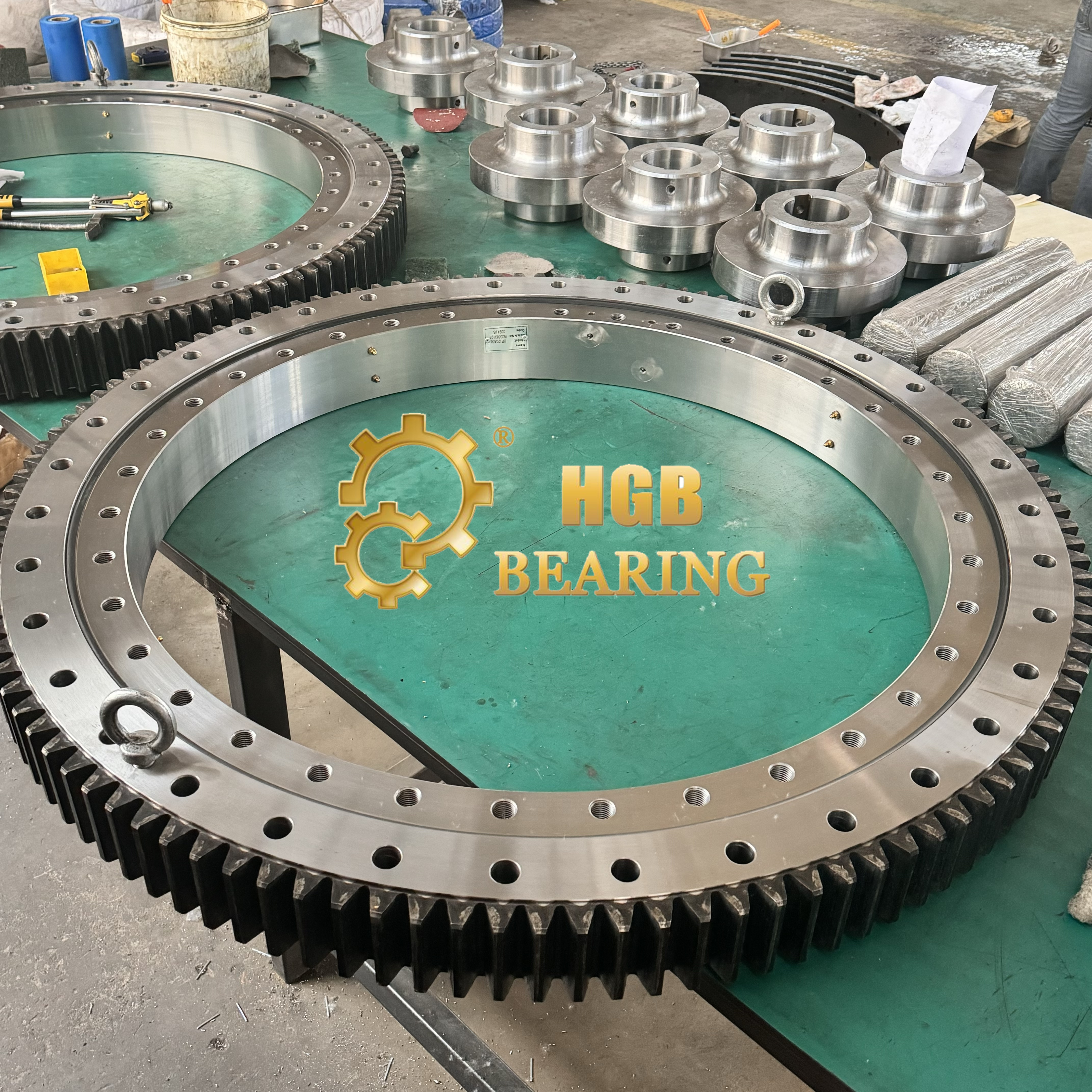
2. Durability
The durability of the slewing bearing is a very important indicator. It determines the life and use effect of the equipment and directly affects the economic benefits of the equipment. Generally speaking, the life of the slewing bearing should be consistent with the service life of the equipment. At the same time, it needs to have good wear resistance and fatigue resistance to ensure that the equipment can maintain a good operating state under long-term use and heavy load.
3. Bearing capacity
The bearing capacity of the slewing bearing directly affects the safety and stability of the equipment. Therefore, when purchasing, it is necessary to select a suitable bearing capacity according to the use requirements and load requirements of the equipment. When choosing, pay attention to the larger weight and use of the equipment to determine the larger bearing capacity of the slewing bearing.
4. Brand and after-sales service
When purchasing a slewing bearing, choose a manufacturer with a guaranteed and good brand reputation to ensure product quality and after-sales service. At the same time, you need to understand the brand's reputation and product quality in the industry in order to make the right decision.
5. Cost control
The price of slewing bearings is relatively high, so you need to pay attention to cost control when choosing. On the premise of ensuring product quality and reliability, choose a relatively reasonable price, and pay attention to the manufacturer's preferential policies to reduce procurement costs.
6. Production process and quality control
Production process and quality control are important factors in judging the quality of slewing bearings. Choose manufacturers with excellent production technology and strict control of the entire process to ensure that the selected slewing bearings meet various technical indicators. At the same time, it is necessary to understand the manufacturer's process reserves and R&D strength to ensure the pertinence of the slewing bearing and better meet the use needs of different industries and different customers.
